YOUMARES 13
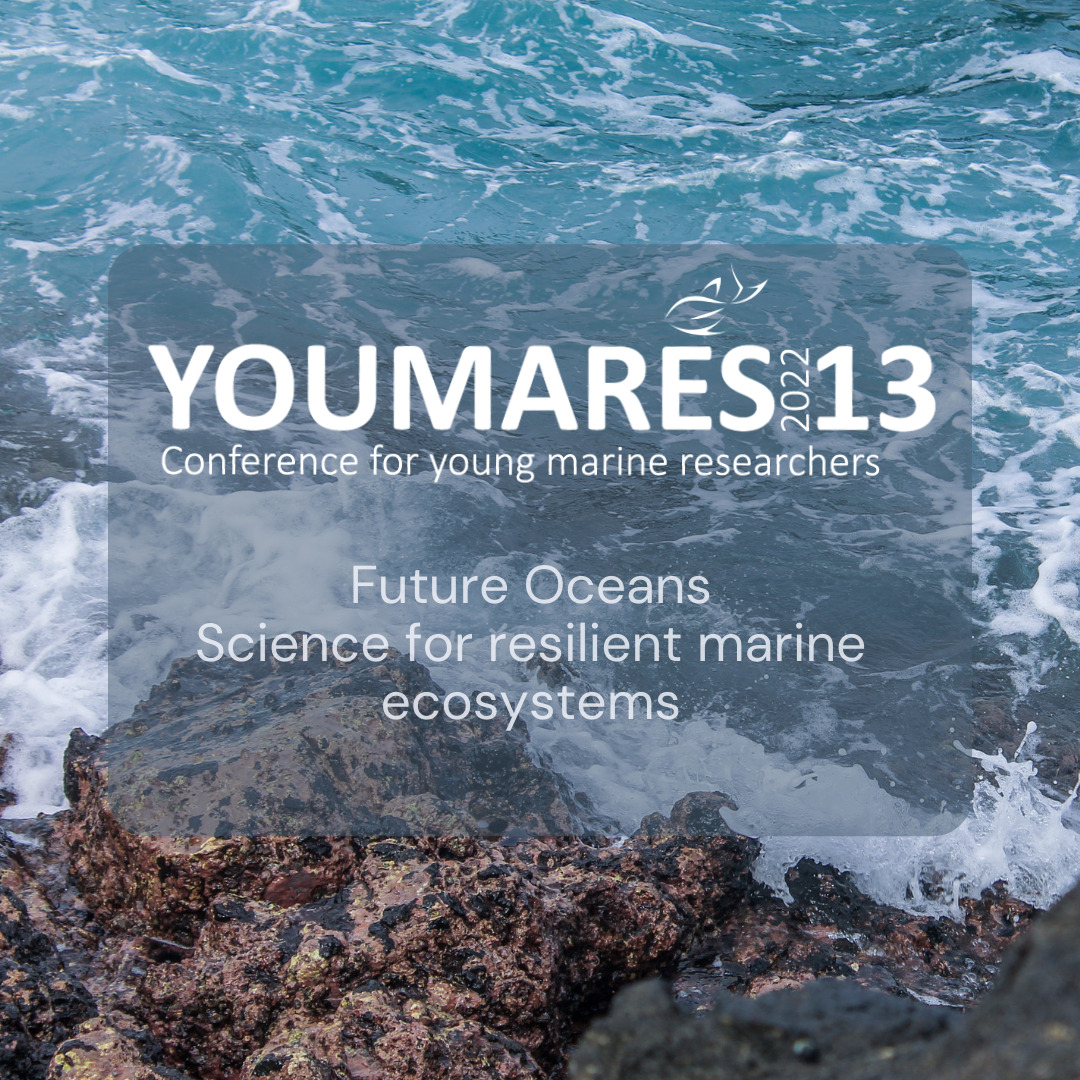
YOUMARES 13 will take place in Museum für Naturkunde, Berlin, Germany from 11 – 14th October 2022.
The “Museum für Naturkunde – Leibniz Institute for Evolution and Biodiversity Science” is an integrated research museum within the Leibniz Association. It is one of the most important research institutions worldwide in the areas of biological and geological evolution and biodiversity.
Considering the Covid-19 pandemic, the conference is based on a hybrid concept. Bringing together benefits from a digital world together with lively discussions in small groups, strictly complying with the respective current Covid-19 regulations.
YOUMARES13
Future Oceans
Science for Resilient Marine Ecosystems
The UN has declared the current decade (2021 -2030) as the UN Decade of Ocean Science for Sustainable Development. In that context, the YOUMARES conference 2022 will use the second outcome of the Ocean We Want: “A healthy and resilient ocean, where marine ecosystems are understood, protected, restored, and managed” as a guiding framework to promote marine research that covers a variety of ocean related fields and, simultaneously touches upon the Sustainable Development Goals (SDGs).
We want to provide a stage for an interdisciplinary community of young marine researchers. The outcome “A healthy and resilient ocean” is linked to the sectors of marine science which they touch upon: Innovation & Technology, Research & Science, Society, Governance & Policies, Education & Art, Economy. The second outcome identified by the UN provides a variety of potential topics that can be discussed during YOUMARES 2022, like data collection using citizen science, species identification guides, scientific findings on specific marine species/ecosystems, potential modeling, and mapping softwares (GIS), stakeholder analysis and involvement, marine protected areas (MPAs), etc.
YOUMARES13 conference will be an important platform for a variety of research projects including citizen science approaches, education & outreach programs, and projects with a focus on businesses and entrepreneurship. This conference provides a space for like-minded young researchers from numerous nationalities and fields of study to present their research and have productive interaction with fellow researchers. The diverse and interdisciplinary atmosphere of the event allows for effective networking and enhances new partnerships and perspectives on marine related topics.
Take a look at this years programme HERE.
Hosts: Enrico Montalbetti, Ph.D. student, and Yohan D. Louis, Ph.D. (University of Milano-Bicocca, Italy /MaRHE Center, Maldives)
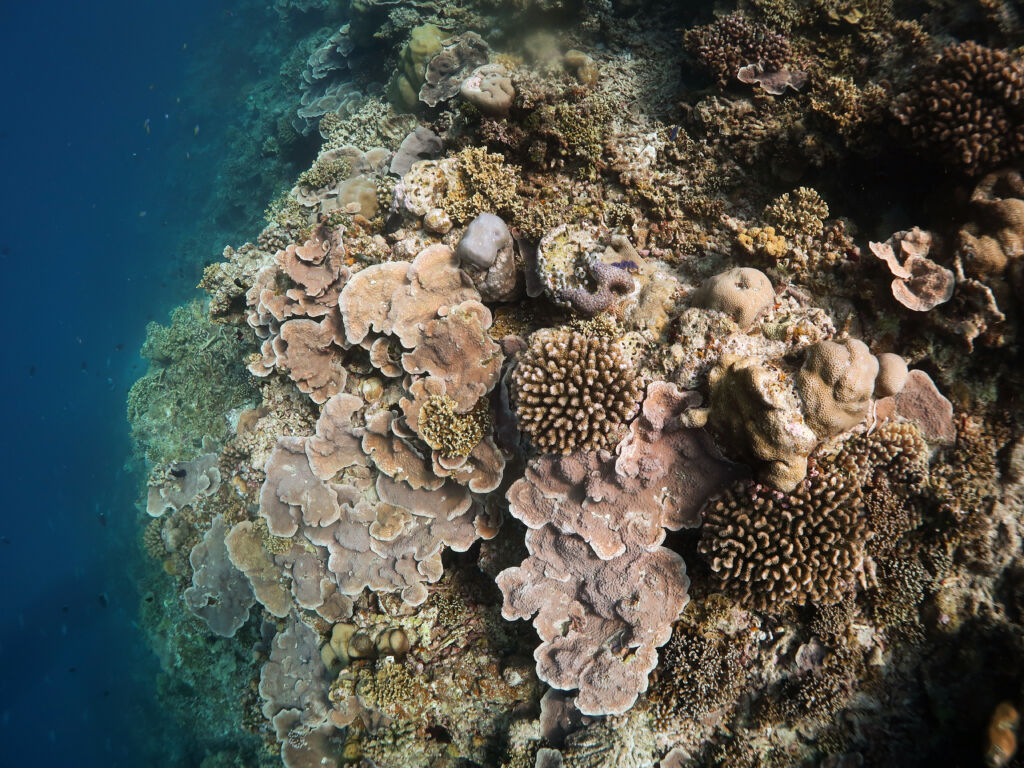
An unprecedented biodiversity loss is being observed globally, as a consequence of anthropogenic and environmental disturbances. Global warming, ocean acidification, disease outbreaks, pollution and microplastics are among the contemporary threats to marine biodiversity. Some marine organisms are capable of responding to these stressors in a variety of ways ranging from physiological compensations, cellular acclimatory pathways and molecular mechanisms for tolerance. However, these diverse mechanisms and their limits are still hardly understood. This session will focus on the cellular and molecular responses, the earliest steps, of an organism’s response to any environmental stress. The topics of interest include, but are not limited to, the following: (1) metabolic changes, (2) homeostasis pathways, and (3) immune response. In this session we want to provide a platform to young investigators studying marine life to bring together current research and reviews on marine organisms’ response to contemporary environmental disturbances. With the sixth mass extinction accelerating, it is essential that marine scientists learn and integrate tools, techniques, concepts, and theories from different fields of marine biology. We aim to advance general knowledge of the mechanisms underlying the capacity of marine organisms to survive and thrive in a rapidly changing environment. Relevance to the second outcome of the UN Ocean Decade For a healthy and resilient ocean, it is imperative to better understand and elucidate the stress responses, especially for species that cannot migrate to new environmental optima and are directly exposed to the surrounding environmental conditions. These efforts would be essential in designing conservation and restoration strategies.
Hosts: Dr. Matteo Tomasini and Martin Eriksson, Department of Marine Sciences, University of Gothenburg, Sweden.
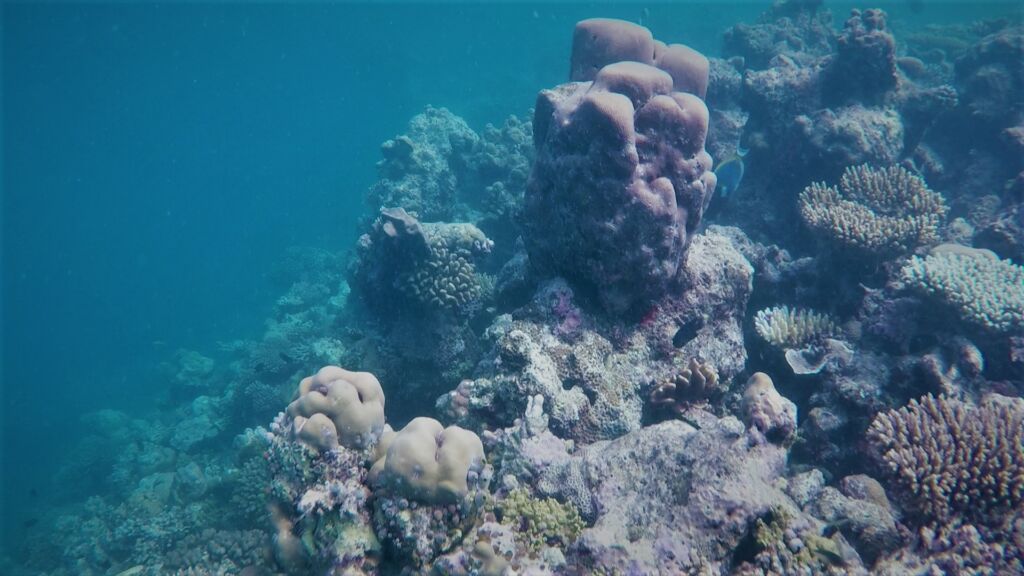
According to the IPCC Sixth Report, at least half of all species on Earth have already modified their spatial distribution due to ongoing climate change. Species’ ranges are the result of many biotic and abiotic factors in an ecosystem. The intricacy of feedbacks between these factors can induce small changes to any of them to cause cascading effects over the whole ecosystem. For example, some of these cascading effects are caused by the interaction between species with different functions in the same ecosystem. When climate is modified locally, species generally respond either by shifting their range (e.g., by moving north to track lower temperatures, due to an increase in sea temperature), or by adapting to the new conditions. Often, both strategies come into play, leading to complex eco-evolutionary dynamics. For conservation, it is essential to be able to predict the adaptative potential of a species, as well as its possible future distribution, based on the forecasted climate. Without this piece of information, it is impossible to correctly assess which populations require intervention, and which are likely to survive climate change. However, it is difficult to develop management strategies accounting for both the future shift of a species and its potential for adaptation to new conditions. Additionally, the lack of financial resources reduces the number of species that can be monitored, and monitoring efforts often do not include genetics. The aim of this session is to bring together scientists studying the mechanisms behind establishment of species’ distributions in the sea, with scientists and managers who are monitoring the current species’ distributions. By bringing them together, we are hoping to explore and uncover common patterns observed during recent species’ range shifts, and to develop recommendations for the management of future species’ distributions. We believe that this goal is perfectly in line with the second outcome of the UN Ocean Decade, as it aims at opening a channel between the people working to understanding marine ecosystems and people responsible for protecting and managing them.
Host: Marina Parrondo, Toralla Marine Sciences Station (ECIMAT – CIM – UVigo), Pontevedra, Spain.
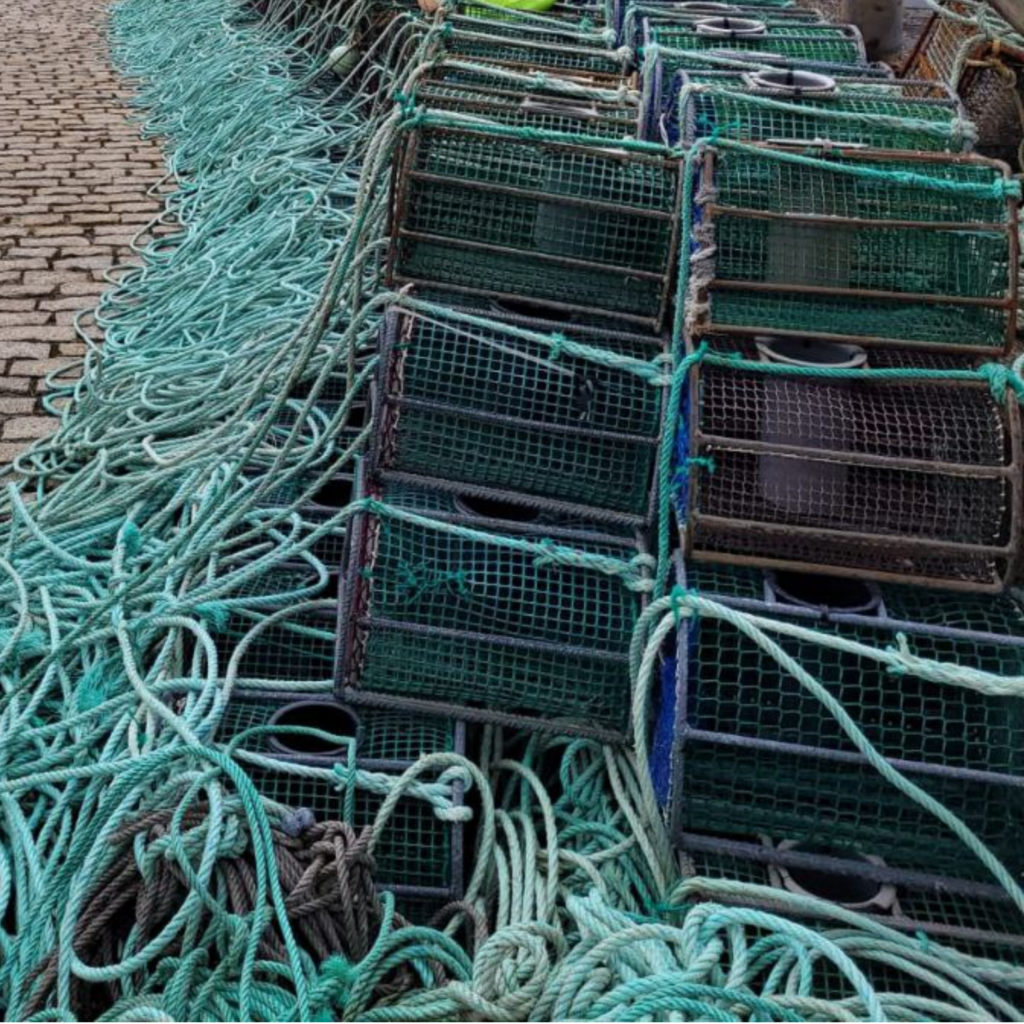
This session invites young scientists to present their work and findings using molecular tools applied to marine invertebrates with commercial interest. I am looking for species identification; fisheries stock structure; resolving mixed-stock fisheries; DNA as a biomarker for age; ecosystem monitoring; estimating harvest rates and abundance; genetic diversity, population abundance and resilience; evolutionary responses to fishing; genetic effect of stock enhancement; detection of pathogens and invasive species and product provenance and fisheries surveillance. Traditionally, fisheries conservation and management have been based on abundance data, productivity estimates and information on stock dynamics. However, the use of molecular genetic techniques in fisheries research has increased dramatically in the last few decades and genetics offers a diverse collection of versatile and useful tools to inform fisheries management on issues that have a biological basis. Although microsatellites and mitochondrial DNA markers have been used at an increasing rate in fisheries research, today the application of new techniques such as mass sequencing-derived markers to fisheries research has grown significantly since then. However, there is a clear species bias, and marine invertebrates continue to lack genetic and genomic resources compared to other other widely studied groups such as fish. Relation to UN Ocean Decade: Managers need to be aware that management activities affect the genetic composition of stocks, and genetics has much to contribute by being able to study the evolutionary potential of species in a context of fishing pressure and climate change. Achieving a healthy and resilient ocean means integrating genetic data into management, as it can address issues of direct relevance to sustainable resources management, ensuring that fisheries and aquaculture adapt to the impacts of climate change and improve the resilience of food production systems.
Hosts: Camilo Escobar-Sierra, Ph.D. candidate University of Cologne (Germany), and Willemien de Kock, PhD candidate in Zooarchaeology of Marine Turtles, University of Groningen, Netherlands.
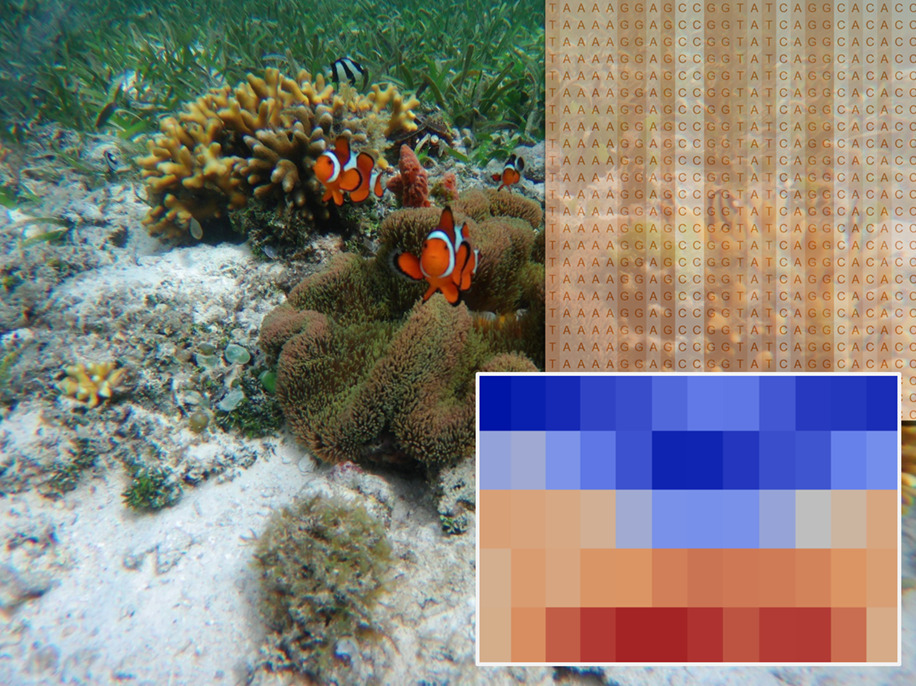
The aim of the session is to be a platform for young researchers to showcase and discuss their work using omics tools for marine science research. The common thread of the session would be the use of novel omics techniques to either respond to old questions or to understand new patterns in all subdisciplines of marine science. As we are seeing a rapid development of omics technologies, increasing price accessibility, and the advent of straightforward software for their analysis; omics are revolutionizing the biological sciences. This is seen translated into a growing number of studies that are making use of omics to confirm existing hypotheses, or as powerful tools to unravel new avenues of biological research. However, in marine sciences, the number of studies is considerably lower than in other fields. This gap represents an untapped source of new knowledge and a sea of opportunities for the further development of cutting-edge marine science. For example, omics tools such as population genomics or palaeo-proteomics allow us to look back into the past. We can identify bottlenecks in genetic diversity in response to climatic events, which give us indications of how the marine environment may change in the future. Focussing on the present, the whole suite of omics tools can help us gauge the current state of an organism, environment or ecosystem. We are able to identify changes or indications of stress far more rapidly using tools such as metabolomics or transcriptomics in comparison to more traditional indicators used in marine monitoring. To reduce anthropogenic impacts, including climate change, they must first be measured. Only then can marine and coastal ecosystems be correctly monitored, protected, and healed. Omics are a novel way to measure health and resilience, they undoubtedly have a place in the next decade of ocean-focussed science.
Hosts: Silja Denise Kröger, PhD student, EU BIO-PLASTICS project, HAW Hamburg, and Moritz Kielmann, Cooperative doctoral project, HAW Hamburg.
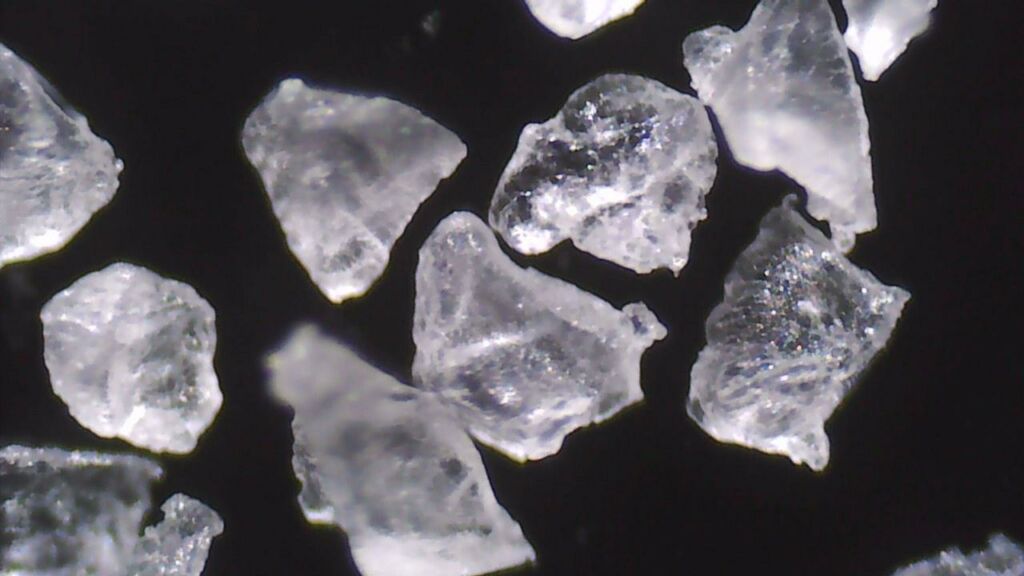
Plastics play a major role in our everyday life since they are cost-effective and can be used for endless applications due to modification by additives. Therefore, the worldwide production of plastics increases yearly and associated also the pollution of the environment. In aquatic environments this often takes the form of long-lasting plastic litter, originating from a variety of mostly land-based sources, and present as both macro- and micro-plastics. The uptake of plastic particles and synthetic fibres has been demonstrated in a variety of studies for various organisms, from plankton to fish to humans. Therefore, plastic pollution in the aquatic environment can have potential effects on human health since it affects both organism and environmental health. Although many studies have investigated the environmental distribution, impact and degradation of plastics in aquatic ecosystems, there are still major gaps in our understanding of the potential impact of (micro)plastics on a wide range of taxa and aquatic ecosystems. For example, data on the potential effects of (micro)plastic additives and pollutants adsorbed to (micro)plastics are scarce. Data collection and scientific discussions on environmental distribution, impact and degradation of (micro)plastics on marine ecosystems support the second outcome of the UN Decade of Oceans “A Healthy and Resilient Ocean” by enabling evidence-based policy decisions. This session welcomes presentations dealing with risk assessment of (micro)plastics including biodegradable materials, modelling of (micro)plastics in the marine environment or studies on ingestion of (micro)plastics in organisms.
Hosts: Conor MacDonnell, PhD, and Franciszek Bydalek, University of Bath, Bath, UK.
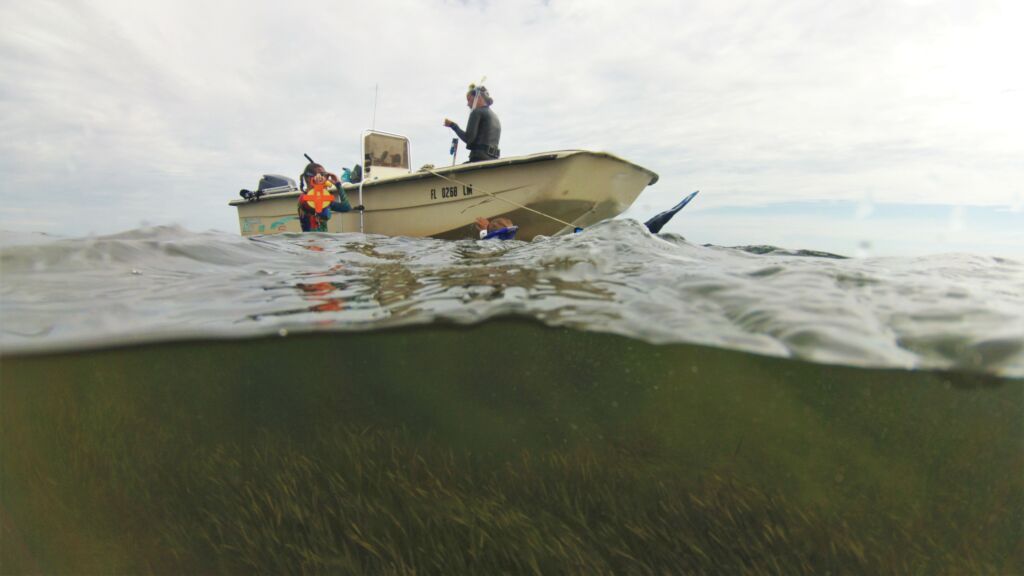
XIAOYI
The aim of this session is to share experiences and knowledge of recent progress made in the restoration of marine ecosystems. While conservation and management are integral for healthy oceans, restoration is essential to reversing the recent catastrophic declines in multiple ecosystems and building the resiliency of habitats in a future with increasing anthropogenic stressors. The current body of knowledge in saltwater habitat mitigation is relatively limited compared to terrestrial systems, and subsequently marine system restoration is often expensive and subject to a low rate of success. Recently, multiple government, non-profit, and academic groups have brought us closer to effectively reversing some of the declines in coastal ecosystems. This is important to the second outcome of the UN Ocean Decade: “A healthy and resilient ocean,” where “marine ecosystems are understood, protected, restored, and managed.”
Hosts: Katalin Patonai, PhD Candidate, Eötvös Loránd University, Department of Plant Systematics, Ecology and Theoretical Biology, Budapest, Hungary, and Dr. Gregorio Alejandro López Moreira Mazacotte, Postdoctoral Researcher, Department of Ecohydrology and Biogeochemistry, Leibniz Institute of Freshwater Ecology and Inland Fisheries (IGB), Berlin, Germany.
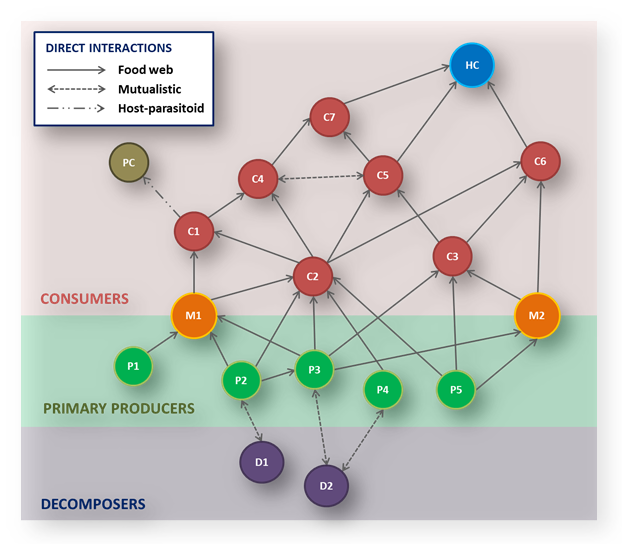
Ecological network models such as those representing food webs describe the world as a web of connections. The world of humans and the biodiversity of our planet are tightly linked, full of intertwined direct and indirect effects. It is time to broaden the traditional scope of network science. To better understand the functioning and resilience of marine ecosystems, the consideration of human presence and actions is critical, incorporating social-ecological dynamics in addition to synthesizing trophic connections. It is especially important to approach these topics from an interdisciplinary perspective, which is still a main challenge. Our aim is to start the session with a Keynote Speaker elaborating on food web ecology with a particular emphasis on keystone species. Afterwards, we will have a series of lectures focusing on novel approaches and case studies in marine food web research, followed by a short, guided discussion. Our session calls for abstracts which apply food webs as ecosystem models with opportunities of incorporating anthropogenic aspects. We would like to hear about unique case studies, new methodologies, statistical and modelling frameworks pertaining to food web analysis. Contributions to this session may use quantitative methods (e.g., food webs, ecosystem modelling, trophic energetics, ecological network analysis) or qualitative methods (e.g., functional traits) for the understanding of ecosystem structure and functioning, and the assessment of potential impacts of human activities like fishing. Food webs have an incredible potential to describe a healthy and resilient ocean and can be used to advise further research.
Hosts: Léticia Weber, Salomé Mormentyn, Carmen Lopez
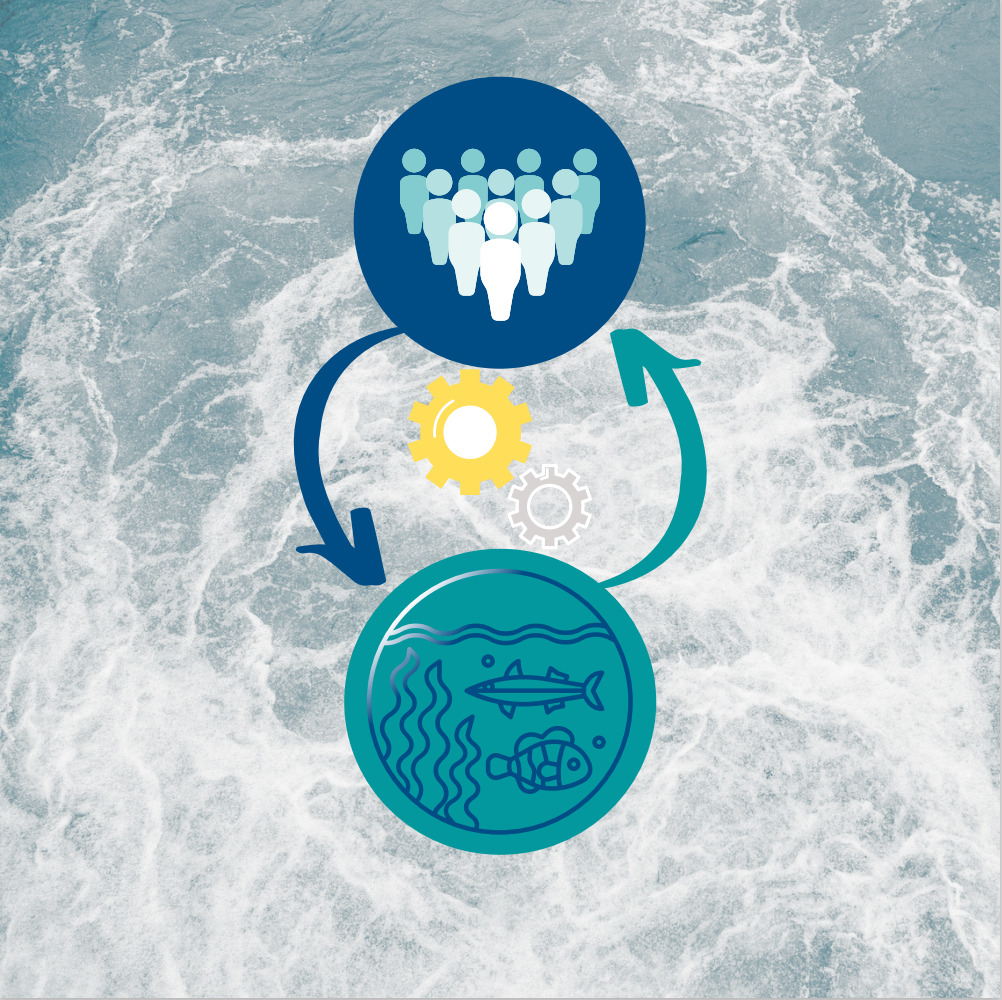
The aim of the session is to communicate and exchange on the importance of innovative technologies based on Marine Ecosystem Services, that integrate Ocean protection and the blue economy. Therefore, allowing us to move toward more sustainable ocean resources and ecosystems management. Living with and not against the Ocean. Marine Ecosystem Services are the benefits marine ecosystems provide to mankind. These benefits can be supporting (e.g., habitat construction), provisioning (e.g., sustainable seafood supply), regulating (e.g., CO2 sequestration), and Cultural (e.g., tourism). Marine Ecosystem Services are still new areas, being more and more developed in recent years, but still lacking effective assessment tools. For that reason, we see MES as a key topic in future Ocean Sciences, allowing us to improve marine ecosystem resilience. MES assessment tools, when developed, will provide a fundamental tool to integrate ocean conservation into market value and there allow a real implementation in the field. How it is related to the UN Ocean decade: A healthy and resilient Ocean Marine ecosystem services are the benefits that human society gets from the Ocean. More the marine ecosystems are healthy more they produce services for mankind. By putting a focus on MES, companies, project managers and public authorities will be able to concretely invest in marine conservation, knowing the services they gain from it. It also is a good communication and awareness tool for marine stakeholders, leading to sustainable development, and therefore an increase in ocean resilience. In addition to the social benefits, MES emphasize the ecological benefits of a good and healthy ocean (Carbon sequestration, coastal protection, biodiversity enhancement, and protection, etc).
Host: Ivaldo de Jesus Fumo, Student of Oceanography at Eduardo Mondlane University, Founder Member and Vice Deputy Director of Mar Mozambique Association.
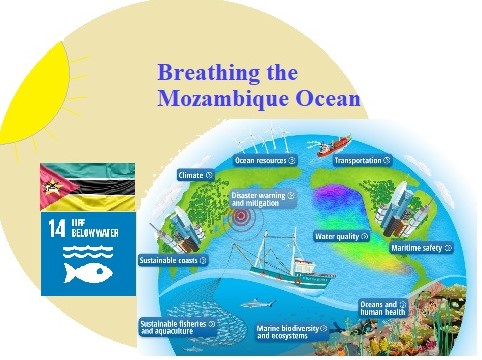
The main objective of this session is to describe the successful activities that have been carried out in Mozambique by young people related to SDG14. With temporarily the single ocean theory has gained space and multisectoral and comprehensive work has been an alternative for us to reach the ocean we want together. It is in this context that I intend to bring to this section young people from different areas who have dedicated their time and their lives to the preservation, protection and conservation of the oceans, their resources as well as their sustainable exploration and scientific and social work in Mozambique. In this way, in this section, I intend to bring the approaches of young marine scientists, social and environmental leaders to be able to make their comments about how they have developed their activities in favor of health and safety. Mozambique has a coastline of more than 2.7 km that is home to an extensive area of living and non-living marine resources with about more than 3 marine conservation areas and 14 ecological regions of global importance. With flora and fauna rich in biodiversity and rare ecosystems and important at a global level, with 26% of the national territory being protected areas (national parks, national reserves, hunting reserve, wild farms and forest reserves). Therefore, there are young leaders, institutions and organizations that have been dedicated to the protection of marine and coastal ecosystems and the communities that inhabit them and in this section, we intend to bring out their work and illustrate how they have developed their work in order to safeguard health. Of marine areas at the country level and how these areas have been managed in order to guarantee that, this biodiversity of global importance is not lost.
Hosts: Leila Kittu, PhD in Marine Biogeochemistry, Christian – Albrechts University of Kiel – GEOMAR, Helmholtz Centre for Ocean Research (Germany), and Nicolás Sánchez, PhD candidate, GEOMAR (Germany).
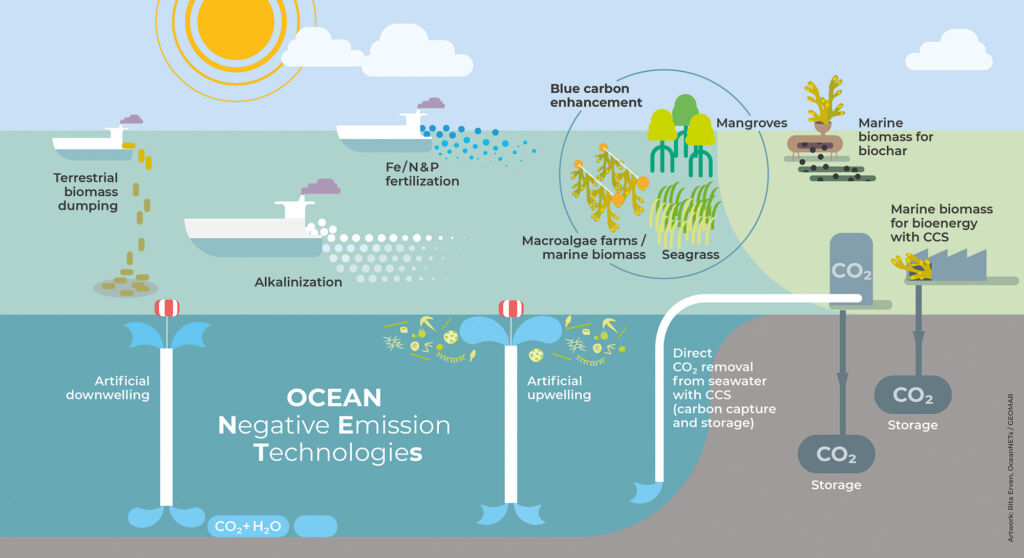
Rising temperatures, ocean acidification, overfishing, and acoustic, chemical and plastic pollution, are a few of the human-driven stressors that put marine ecosystems at risk. With Climate Change at its center, they challenge the ocean ́s resilience, damage its health and, ultimately, threaten its capacity to provide vital ecosystem services. To meet the Paris Agreement of staying well below 2°C warming, reduction of carbon dioxide (CO2) emissions must be accompanied by the active removal of historically-emitted CO2. The oceans play a central role both in the global Carbon cycle and in regulating climate. In fact, they have taken up a quarter of our CO2 emissions and absorbed over 90% of the heat increase derived from Climate Change. Ocean-based Carbon Dioxide Removal (CDR) technologies aim to accelerate and enhance these natural processes that mitigate Climate Change, but which by themselves are not capable of doing so in the urgent timescales needed. Responsible implementation of any CDR technology calls for previous addressing of three knowledge gaps: How effective is the approach? How can its CDR potential be verified? And, what are the associated ecosystem impacts and co-benefits? This session aims to provide a forum among young scientists to explore these complex multidisciplinary questions around the field of ocean-based CDR solutions. We thus invite speakers from the social, economic, technological and natural sciences to share their insight and expertise with us. We have a responsibility to protect the ocean ́s life and resources, to ensure a safe future for generations to come. This responsibility culminates in action, and research needs to accompany it every step of the way.
Host:
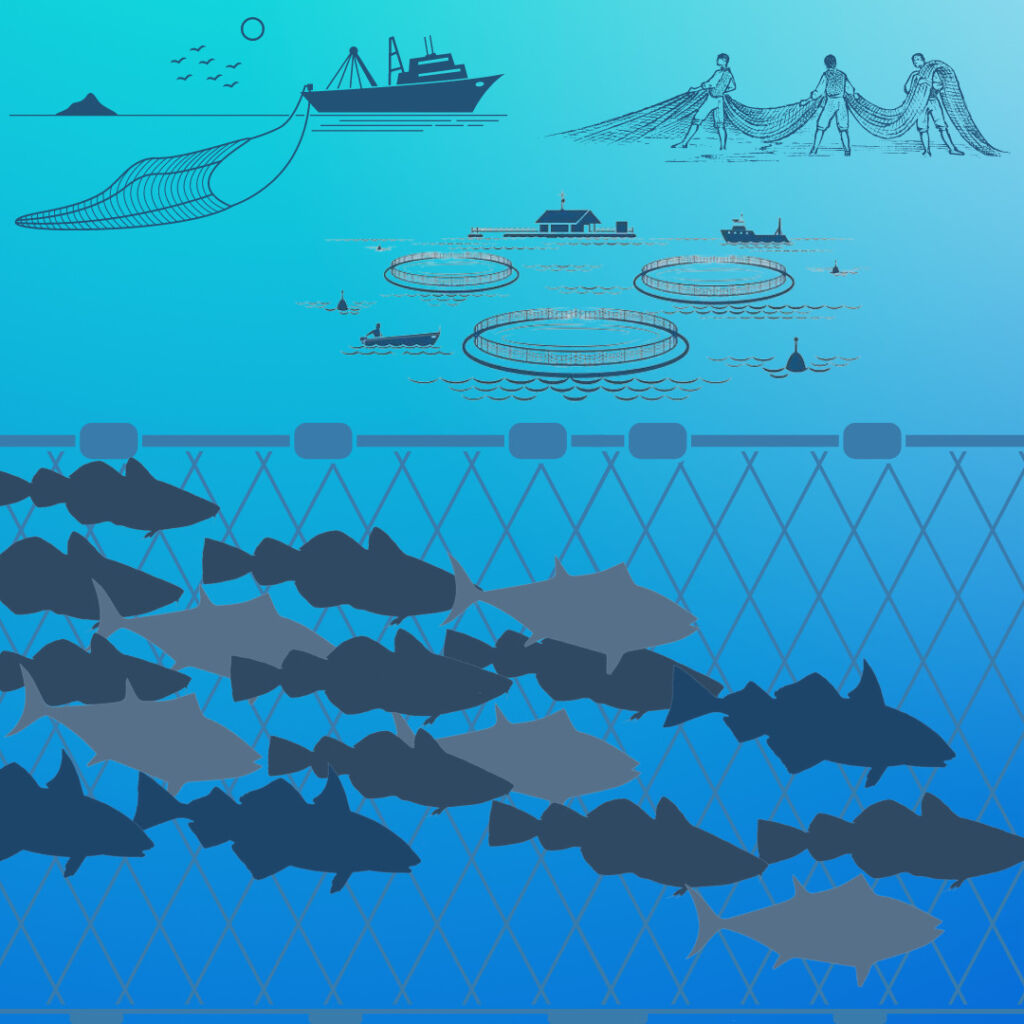
Fish, either produced through fish farming, aquaculture activity or caught from wild marine stocks, is a primary source of protein and essential nutrients for hundreds of million people around the world. The contribution of fisheries and aquaculture to food security and nutrition now and in the future is driven by many interactions between several environmental, development, policy, and governance issues. The need to feed a growing global population, and address a growing demand for fish, puts pressure on natural resources and challenges the sustainability of marine fisheries and aquaculture development. However, marine and aquatic ecosystems are under stress – from climate change, overfishing and unsustainable fishing and aquaculture practices in some areas, as well as pollution from various other human activities, which lead to ocean acidification and declining biodiversity. What is more, illegal, unreported and unregulated (IUU) fishing continues in many parts of the world, adding excessive pressure on fish stocks, harming law-abiding fishers through unfair competition and thereby reducing their profitability, in addition to limiting employment opportunities throughout the value chain. In this session we aim to bring together young researchers, stakeholders and policy makers to present their work and ideas on the sustainable future of marine fisheries, by-catch and aquaculture, and ecosystem-based management.
Host: Dr Stina Kolodzey, University of Otago
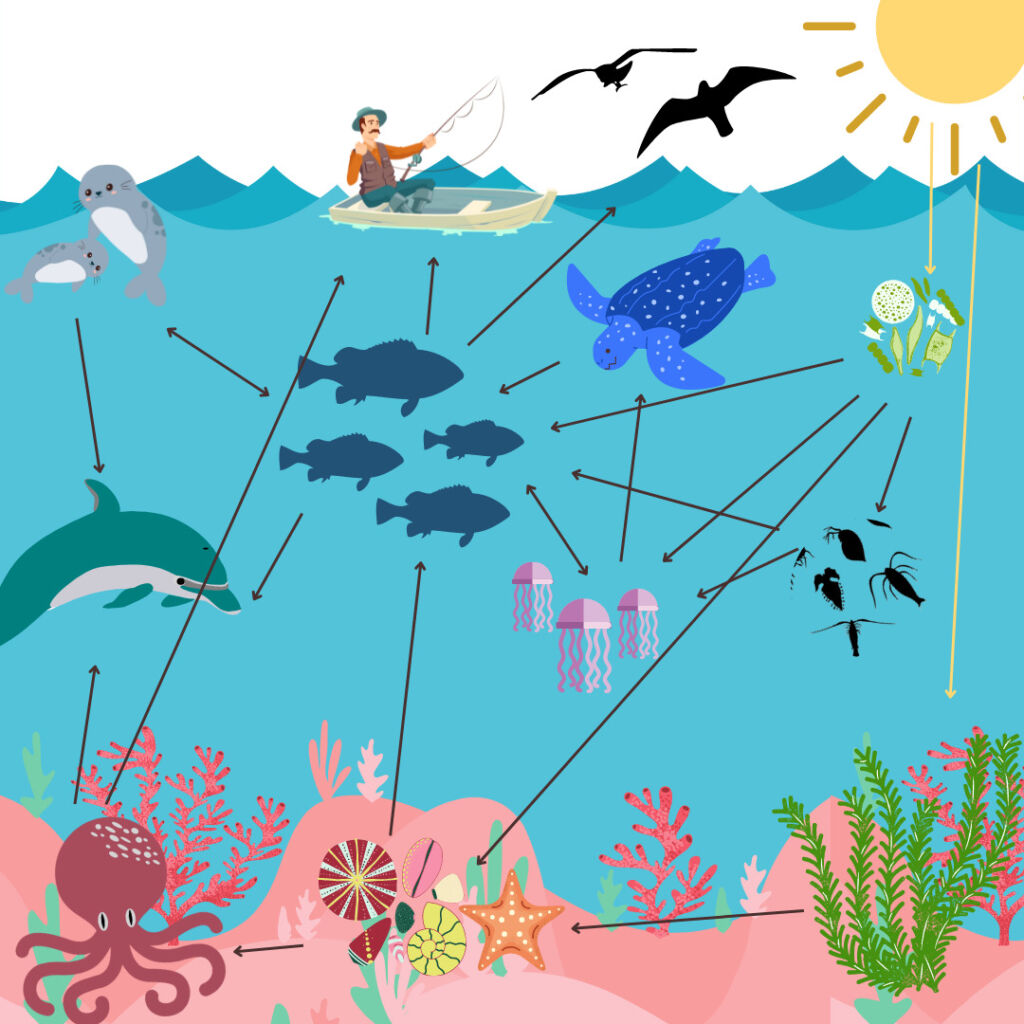
In marine ecosystems, rising atmospheric CO2 and climate change are associated with concurrent shifts in temperature, circulation, stratification, nutrient input, oxygen content, and ocean acidification, with potentially wide-ranging biological effects. Population-level shifts are occurring because of physiological intolerance to new environments, altered dispersal patterns, and changes in species interactions. Healthy trophic dynamics and food webs are important for the maintenance of species diversity and provide a source of income and food for millions of people worldwide. From phytoplankton distribution and abundance to top predator interactions, understanding how ecosystems function under the effects of global warming is a challenge in ecological research. In this session, we are inviting young researchers to present their experimental work on the complex effects of anthropogenic stressors on species interactions, trophic dynamics and ecosystem functioning.
Host:
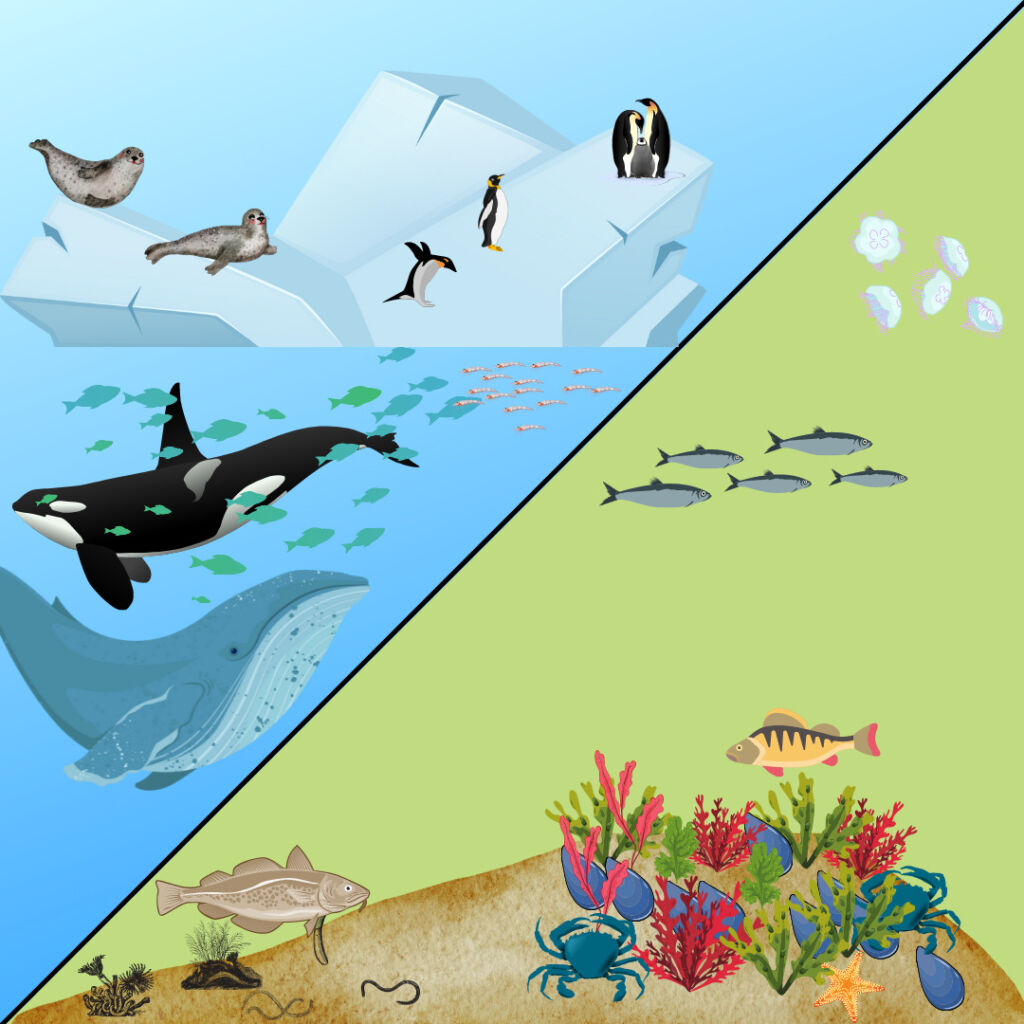
Marine ecosystems provide essential services to humans, yet their future sustainability has been endangered by human patterns of exploitation that threaten system robustness and resilience. Marine ecosystems are complex adaptive systems composed of individual agents that interact with one another to produce collective effects, integrating scales from individual behaviours to the dynamics of whole systems. In such systems, small changes can be magnified through nonlinear interactions, facilitating regime shifts and collapses. Recent research indicates that local management, including the establishment of marine reserves, can build resilience to external pressures, perhaps buying some time for more effective regional or global management measures to be put in place. In this session, we want to focus specifically on the polar ecosystems and the landlocked seas (Baltic Sea, Black Sea, Mediterranean Sea, Dead Sea), inviting researchers to present their work on these fragile yet important ecosystems.
Session 14: Ocean circulation and climate change
Host:
The ocean is in perpetual motion. Through its transport of heat, carbon, plankton, nutrients, and oxygen around the world, ocean circulation regulates global climate and maintains primary productivity and marine ecosystems, with widespread implications for global fisheries, tourism, and the shipping industry. Surface and subsurface currents, upwelling, downwelling, surface and internal waves, mixing, eddies, convection, and several other forms of motion act jointly to shape the observed circulation of the world’s ocean. Several processes contribute differently and concurrently to this circulation, including, but not limited to, solar heating, tides, winds, the Coriolis effect, and density changes due to variations in temperature and salinity. In this session, we invite young oceanographers to present and discuss their work on the impact of global warming on oceanic currents and systems.
Session 15: Open session
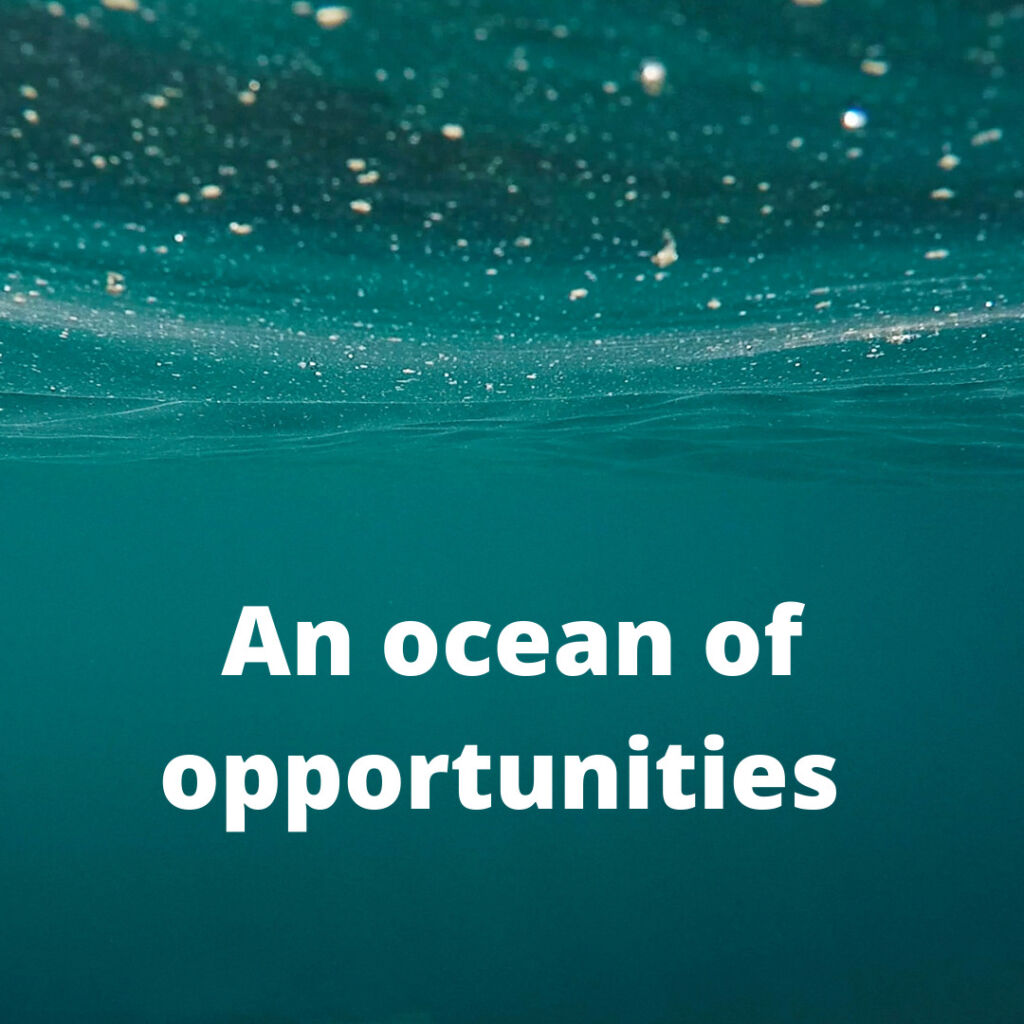
The open session invites young researchers, policymakers, stakeholders, and ocean enthusiasts to present their work in the context of a changing ocean that did not fit with any of the other sessions.



